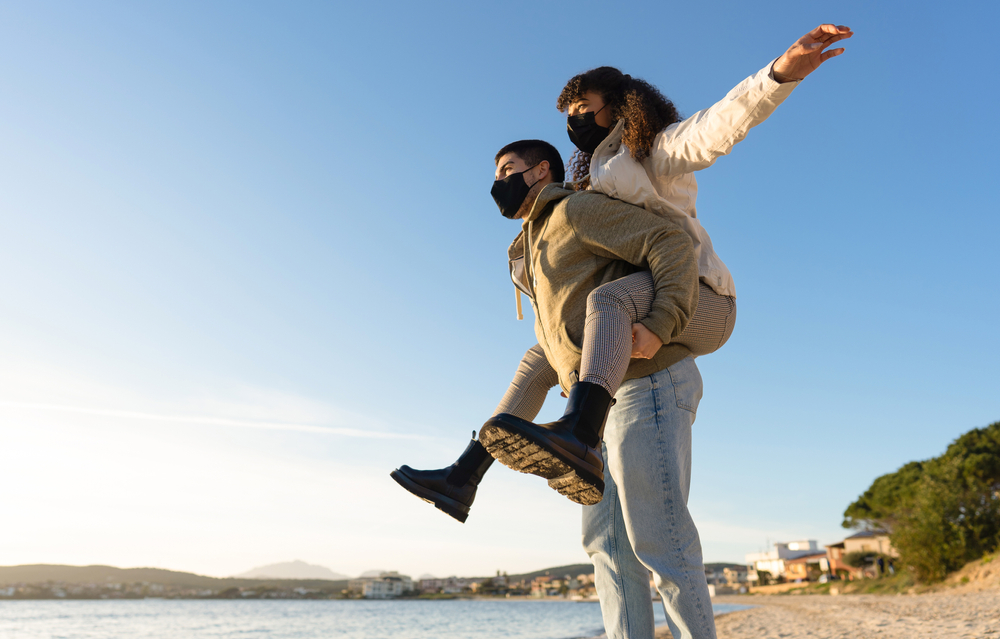
As travel companies eye industry recovery, they are also watching what consumer behaviours, triggered by the pandemic, might stick around in longer term.
Market research company Euromonitor recently published its Top 10 Global Consumer Trends 2021, which provides some clues for the travel industry.
The report is a general overview of how consumer behaviour is evolving but several elements are certainly relevant to travel companies as they reach out to encourage consumers back.
In the past year, brands have been expected to take a position like never before on social issues such as Black Lives Matter and the environment as well demonstrate wider responsibility.
Consumers are indeed watching and while Euromonitor coins the trend “Restless and rebellious” describing a push back against political systems, travel brands also need to take note.
At a recent CAPA Live event, Brent Coker, a consumer psychologist at the University of Melbourne, discussed how 66% of consumers, particularly Millennials, are increasingly making buying decisions based on a brand’s stand on social issues.
“Consumers are increasingly starting to blame brands or look to brands, in terms of how they’re impacting the environmental conditions. So, it’s not just government that’s in the firing line now.”
The restless trend might also come to the fore in consumer reaction to how brands such as airlines, that have benefited from large government bailouts, demonstrate financial responsibility and show empathy to their customers.
The pandemic has shone a spotlight on mental health and wellbeing and forced many consumers to examine their work-life balance.
The “shaken and stirred” trend speaks to how consumers proved resilient over the course of the pandemic as well as how their priorities might be different going forward.
The jury is out on whether business travel, for example, will ever recover to pre-pandemic levels with some airline executives expecting a full rebound but the travel management community is already placing more emphasis on the care and wellbeing of travellers.
Others lean on the side of Zoom and other online collaboration tools continuing to play a massive role.
Many travel professionals are fearing that Zoom is here to stay and that people now value family time over hotel points and air miles.
Several people I know in the corporate world feel that they are not ready to leave the comfort and health security of their homes to risk it for a meeting that can be held via Zoom. More people are reporting that Zoom meetings have become more efficient and effective than in person meetings without the hassle of trying to stay awake through a long drawn out.
Zoom meetings have enabled people to engage with lots of other people and sometimes more than anyone could have in person at a trade show.
As consumers stayed home over much of 2020, many were able to save money, and some believe this will lead to a greater demand for leisure travel.
However, as with past global events, consumers are likely to be value conscious.
Euromonitor, which dubs the trend “Thoughtful thriftier” says companies are responding with buy-now-pay-later services.
A number of such services, which were already visible in the travel industry prior to the pandemic, have gained ground.
Subscription services from companies including Bidroom, eDreams, CitizenM and now Tripadvisor also stand to do well.
These sorts of services will be welcomed by consumers just as desperate to travel but without the savings to bolster them.
The ongoing virtual tours and experiences trend, which many believe is here to stay, will also be kinder to consumer pockets than physical travel.
Companies such as Amazon entering the field and the growing popularity of live-streaming technologies could also help fuel the trend.
Hotels also have been quick to adapt to the phygital world marrying in-person and digital services.
Accor has been creating workspaces in its hotels through its partnership with Wojo, which it holds a 50% stake.
It has also launched its Hotel Office providing workers with an alternative to working from home combined with access to hotel services.
Trends taking hold travel
- Cleanliness and hygiene are a more obvious one in travel and a trend that all segments of the industry addressed early in the pandemic through the introduction of new hygiene protocols, touchless technology solutions and social distancing measures.
- The “Playing with time” trend as dubbed by Euromonitor, has also made an impact in travel with many companies, including Airbnb, pointing to the rise in digital nomads as well as travellers seeking to combine business and leisure trips.
- Build back better has been on the lips of many for some time. It is one of the key messages of Travalyst, the sustainable travel initiative launched by Prince Harry in 2019 with many top travel brand names on board. There is wider recognition that the industry has the opportunity to leave environmentally damaging practices behind and even those segments such as airlines most vilified are addressing the challenge.
The preference for flexible working – which has steadily increased in recent years – has been accelerated by the response to global lockdowns and travel restrictions caused by the COVID-19 pandemic. With many businesses announcing permanent remote work policies, this shift will define new ways of working now and in the future. Recent research* predicts that 22% of all workdays will be conducted at workers’ homes after the pandemic ends, compared with just 5% before.



 share
share








































